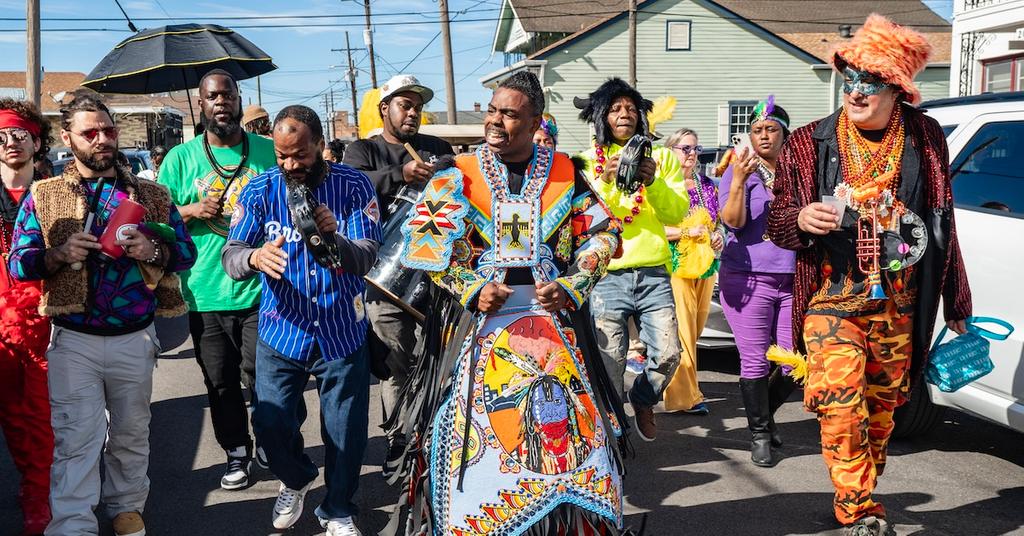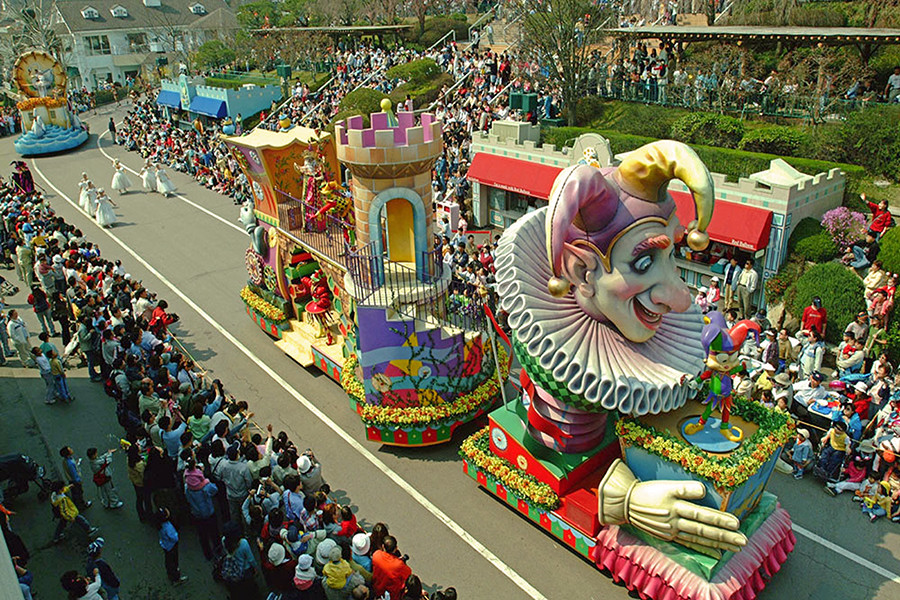Mardi Gras In Korea? Exploring The Festival's Cultural Impact!
Does the spirit of "laissez les bons temps rouler!" truly resonate beyond the borders of its birthplace? Mardi Gras, a festival synonymous with revelry, tradition, and a unique cultural tapestry, has woven its way into the hearts and celebrations of people far and wide, though not always in the ways one might expect.
For those residing along the northern Gulf Coast of the United States, the approach of Mardi Gras, which falls on February 5th this year, signals a period of intense preparation and anticipation. It's a time when the air is thick with excitement, beads are meticulously sorted, and elaborate floats are nearing completion. However, as one ventures beyond this specific geographic area, the familiarity with Mardi Gras can diminish. You might encounter more people versed in the traditions of Christmas than those who intimately understand the intricacies of a Mardi Gras celebration.
Mardi Gras, unlike holidays that are defined by geographical boundaries, thrives on cultural foundations. This fact allows it to be celebrated in countless locations, adapting and evolving based on local customs and personal interpretations. The famous revelry of New Orleans serves as a beacon, but it certainly does not hold the exclusive rights to the carnival spirit.
One intriguing aspect of Mardi Gras's global presence is its adaptation and integration into the cultural landscape of South Korea. While the festival originates from Western traditions, South Korea possesses a rich cultural heritage filled with unique festivals. The following table will shed light on the unique ways South Korea embraces and interprets this global celebration.
| Aspect | Details |
|---|---|
| Cultural Context | South Korea's unique history and customs blend with global influences, resulting in a distinctive take on various festivals. |
| Celebration Name | While not a formal "Mardi Gras" celebration, elements of carnival are incorporated into other festivals. |
| Symbolism | Often intertwined with the celebration of Halloween and other seasonal festivities. |
| Unique Traditions | Eating Tteokguk (rice cake soup) is a custom associated with the hope of good luck in the coming year. |
| Influence of Western Culture | The blend of Western festivities with local customs showcases Korea's openness and adaptability. |
| Examples | Seoul Land hosts events combining Halloween and carnival themes. |
| Key Takeaway | South Korea's festival landscape creatively merges global influences with its rich cultural heritage. |
| Reference | Korea.net |
October 31st brings a different kind of creative expression, as both children and adults embrace the spirit of Halloween, adorning themselves in imaginative costumes. Similarly, in Binche, Belgium, the "Gilles" lead a significant Mardi Gras celebration, culminating in a memorable march on the day itself. The festive atmosphere and sense of community are unmistakable.
The Mardi Gras tradition traces its roots back to 17th-century France. The "Sydney Gay and Lesbian Mardi Gras" stands out as a prominent celebration for Australians, rooted in the gay rights protests of the 1970s. This festival has grown to attract a massive audience, celebrating inclusiveness from across Australia and around the world.
In New Orleans, the celebrations are a vibrant expression of tradition. The citys unique cultural blend gives the event its special character. But, as it spreads across the globe, other communities interpret it in ways that reflect their own identities. In the United States, cities like Mobile, Alabama, and Galveston, Texas, also have their own distinct traditions, adding to the rich tapestry of this global celebration.
From the colorful parades and costumes to the rich, traditional feasts, Mardi Gras is celebrated globally. It is also referred to as Shrove Tuesday, with roots in the word "to shrive," which references the act of hearing confessions. This was often seen as the last opportunity for enjoyment before Lent. According to Catholic theologian Father William P., Shrovetide offered a time for reflection and spiritual preparation.
In the heart of South Korea, the question of whether Mardi Gras is celebrated takes on a unique dimension. While not a traditional festival, elements of the carnival spirit have found their way into the country's vibrant traditions. The blending of cultures is evident here, with Halloween celebrations, for instance, incorporating elements of Mardi Gras. A notable instance is the Seoul Land Halloween Mardi Gras event. It showcases a combination of both Halloween and Carnival traditions, reflecting the Korean capacity to integrate global influences.
In South Korea, the custom of eating a special rice cake soup called "Tteokguk" is a common practice associated with Mardi Gras celebrations. This soup is made with beef, vegetables, and thin slices of rice cake, and it is believed that consuming Tteokguk on Mardi Gras will bring good luck in the coming year. While not a direct equivalent of Western Mardi Gras, the inclusion of such customs showcases how global influences are integrated into the cultural landscape.
The exploration of how South Korea engages with this iconic festival, along with its cultural significance, reveals how the festival is adapted to align with Korean customs and values. This blend of global and local elements offers a fascinating glimpse into the evolving character of traditions. While the article dives deep into the cultural landscape of South Korea, to explore whether this iconic festival has found its place in the country's vibrant traditions, we can see the influence in various other events.
For those celebrating in Canada, Mardi Gras takes on different forms. Some revelers attend parades, while others host themed parties. The cities of Toronto and Montreal are known for their Mardi Gras celebrations. In Quebec City, a unique version of Mardi Gras takes place. The USO Osan is hosting a "Purple Up Floats" event to celebrate military children, with purple floats and the chance to express appreciation. The date of Tuesday, March 4th, is often referred to as Pancake Tuesday, Fat Tuesday, or Shrove Tuesday. This is when Christians traditionally feast before the commencement of Lent.
South Korea's seasonal festivals bring their own unique celebrations and traditions. The seasonal festivals throughout the year tell a story, reflecting the heart and soul of Korean traditions. One example of blending traditions can be seen in the Seoul Land Halloween Mardi Gras festival, showcasing how the traditions of Halloween and carnival can be celebrated together.
Understanding the origins and traditions of Mardi Gras not only enhances our appreciation for the festivities but also connects us to a rich tapestry of cultural history. Mardi gras is also called shrove tuesday, coming from the word, to shrive, which means to hear confessions. while this was seen as the last chance for merriment, and, unfortunately in some places, has resulted in excessive pleasure, shrovetide was the time to cast off things of the flesh and to prepare spiritually for lent, catholic theologian father william p.
The celebrations of Mardi Gras exemplify how a single tradition can be interpreted and celebrated differently around the globe. From the parades of New Orleans to the inclusion of carnival elements in the celebrations in South Korea, Mardi Gras has shown the world's ability to adapt and embrace the spirit of merriment and cultural diversity.
The spirit of "laissez les bons temps rouler!" extends far beyond the traditional celebrations in New Orleans. From Canada's unique celebrations to the incorporation of Mardi Gras elements into Korean festivals, the global community is embracing its tradition. This global reach highlights how traditions can adapt and evolve as they spread across the world.



Detail Author:
- Name : Maida Wuckert
- Email : kari.hermiston@crooks.net
- Birthdate : 2004-07-11
- Address : 855 Harvey Brooks Krismouth, MA 20186-8426
- Phone : +14146847086
- Company : Rice and Sons
- Job : Laundry OR Dry-Cleaning Worker
- Bio : Blanditiis libero aspernatur consequatur. Nesciunt ut nulla molestiae. Omnis atque incidunt est.